-
PHONE
+39 0522 964949 -
PRICE LIST
Ask for the price list
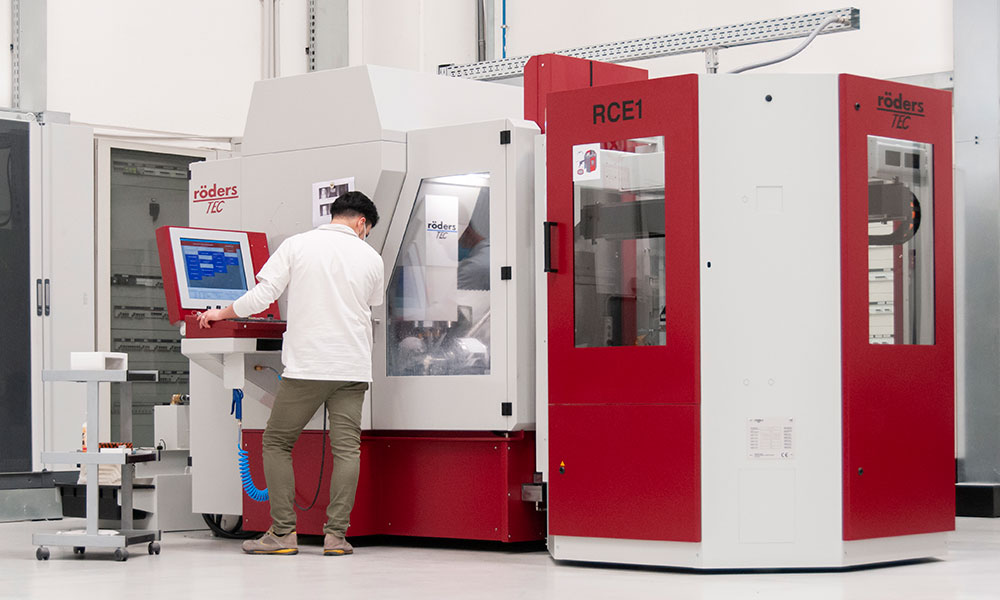
The concept of the milling center is evolving from a commodity for those who cannot afford the system to a set of extremely vertical and complex skills closer to the factory and industrial scenario.
only with a 7-days-a-week manufacturing process can one plan investments, experiment with new pathways and discard, with greater ease, what does not bring value.
The department can count on efficient Röders RXP500DS with 5 axes equipped with 24-slot multipallets that allow pause-free access to different pod materials and thicknesses.
Being able to produce in a continuous cycle and, therefore, large volumes in 24/7 mode, is a primary requirement in order to guarantee the shortest possible delivery times all over the world.
The dental technician is often asked by the clinician to design one or more custom abutments to match the less common implants on the market.
A CNC milling machine that is suitable for processing tough metals such as Cobalt Chrome or Titanium is not always easy for the dental laboratory to access because of its cost, which is far from negligible, as well as the training required for operation, maintenance and disposal of spent fluids and swarf.
Custom abutments follow the contour of the gum perfectly, resulting in a solution that ensures easier cleaning, better overall health and duration of the implant, and also an aesthetic result that is much closer to that of natural teeth.
Proxera provides efficient industrial Röders RXP500DS 5 axis machining centres equipped with a 24 pallet loader that operate continuously, 7 days a week, and it already has agreements in place with the majority of manufacturers, allowing it to receive premilled blanks for every implant connection with reduced delivery times.
All dental technicians have to do is to design the custom abutment and send us the file: we will take care of the rest.
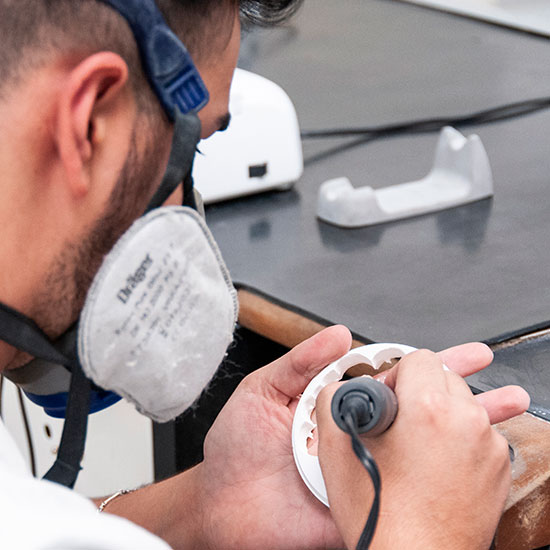
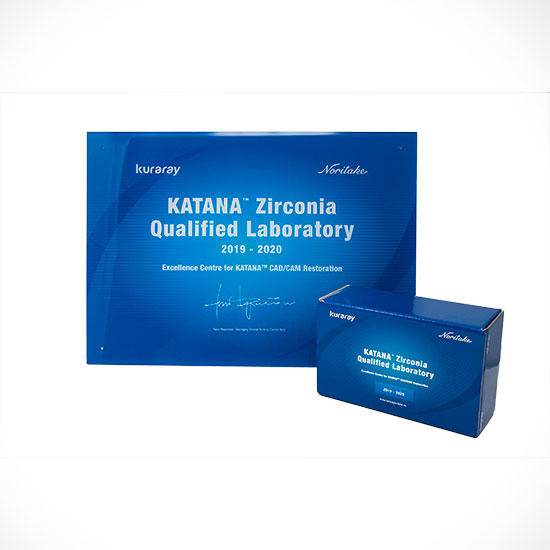
Zirconium oxide or zirconia is a polymorphic crystalline substance that comes in the form of an odorless white powder. Due to its high degree of biocompatibility and its lightness, zirconia has established as an excellent material for the production of dental restorations.
From day one, Proxera has invested in the technologies and systems needed to provide dental technicians with semi-finished Zirconia products starting from both .stl files and models sent to the production center.
Process and result repeatability have been the essential points on which Proxera has based its development over the years, in the conviction that providing semi-finished products with constant and repeatable quality is the best way to help dental technicians to adapt to the challenges of an increasingly complex sector.
In addition to its selection of raw materials - Proxera Smart Choice - Proxera chose to partner with Katana for restorations that require exceptional naturalness, sophisticated aesthetics and uncommon reliability, and therefore obtained certification as a qualified milling center.
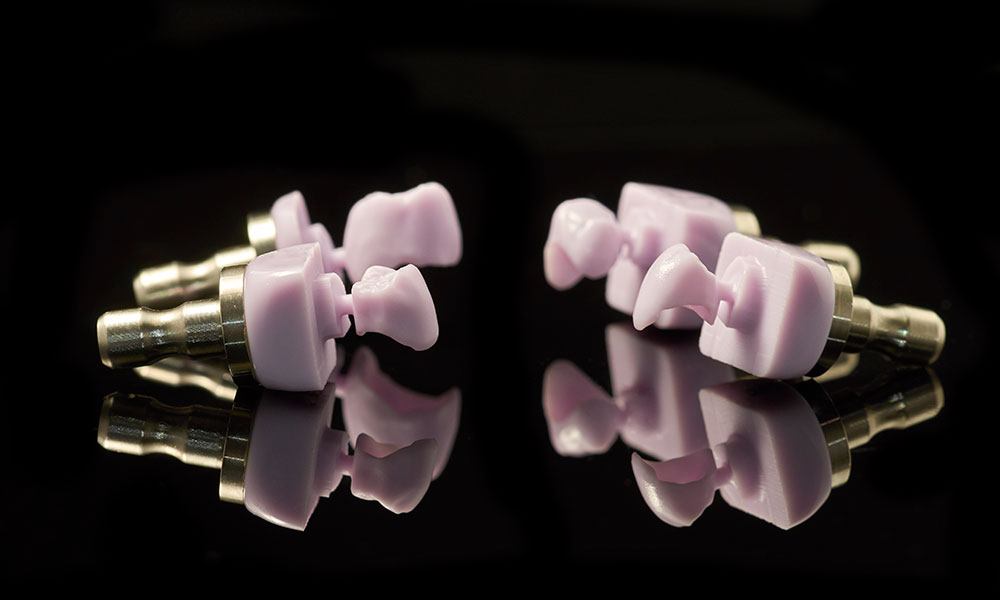
Being a highly aesthetic material, it is ideal for interventions such as veneers; however, it also delivers excellent results in applications such as inlays on molars where it guarantees a fine aesthetic result, high strength and durability, unlike composite, which tends to wear.
In the past, disilicate processing was lengthy and painstaking: regardless of the element to be produced, it was necessary to start with lost-wax modeling and the pinning of the object, followed by pressing. The pressing phase required the use of expensive equipment, including a particular type of ceramic oven, in a time-consuming and complicated process.
Today, with CAD / CAM and digital technology, the equipment required to produce disilicate elements has been considerably reduced and an intraoral or model scan is sufficient to produce the required element in a straight-forward manner.
Lithium disilicate brings several advantages, as it combines versatility and resistance with an excellent aesthetic result.
The range of processes offered by Proxera includes reduced or anatomical crowns and sintered disilicate bridges.
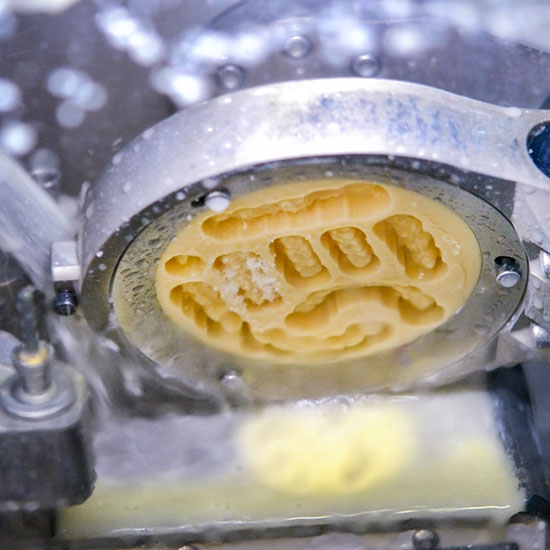
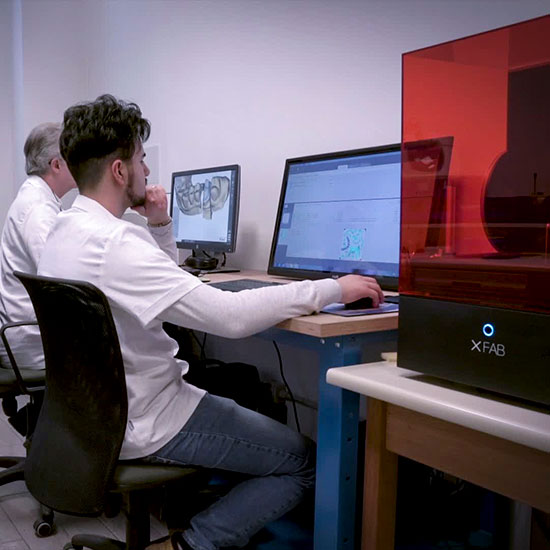
Polymers make it possible to produce semi-finished products for both temporary and permanent use. In particular, the more resistant polymers can be used for those specific uses in which zirconia or metal ceramic would not be ideal solution.
The dental laboratory can collaborate with a milling center such as Proxera® for the production of its pmma, peek and hipc components, using the experience of our technicians in machining and deep knowledge of CNC machines.
PMMA is typically used for temporary prostheses but, with a good structure and good preparation of the mouth, PMMA temporary dentures can have a moderate duration. For durable temporary dentures or permanent dentures that require the characteristics offered by polymers, the use of HIPC is recommended.
The peek is a high-performance, biocompatible resin that guarantees high-quality dental prostheses. The material, worked using CAD/CAM technology, can be used to create Toronto bridges, structures on natural abutments and abutments over implants, bridges and crowns.
HIPC or High Impact Polymer Composite is a composite material that is indicated for durable temporary dentures or permanent prostheses.
© Copyright 2021. All Rights Reserved. Proxera S.r.l. - Via Marchesi, 1 - 42022 Boretto (RE)
C.F. / P.IVA / Reg. Imp. RE 02741880351- R.E.A. 309389- Cap. Soc. € 30.000,00 i.v.a.
Information on the processing of personal data | General terms of sales | Cookies Policy